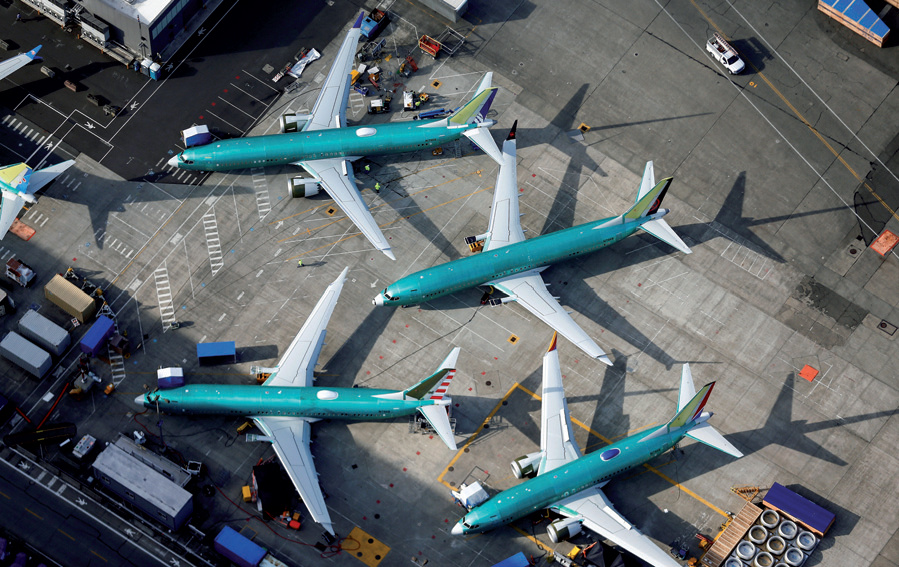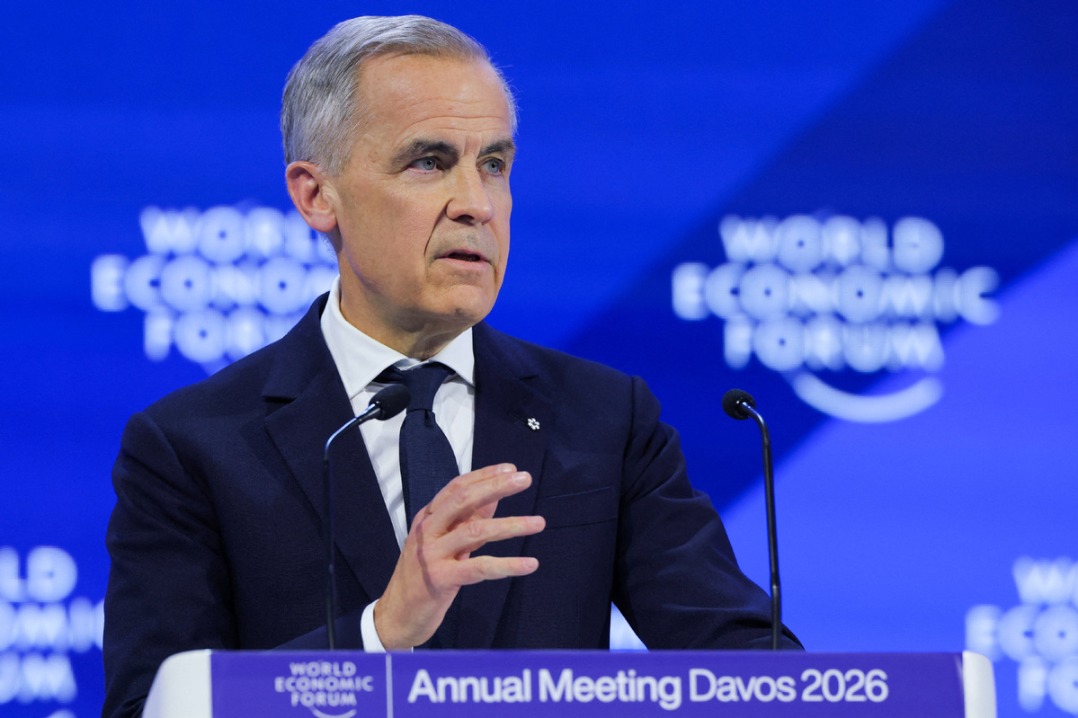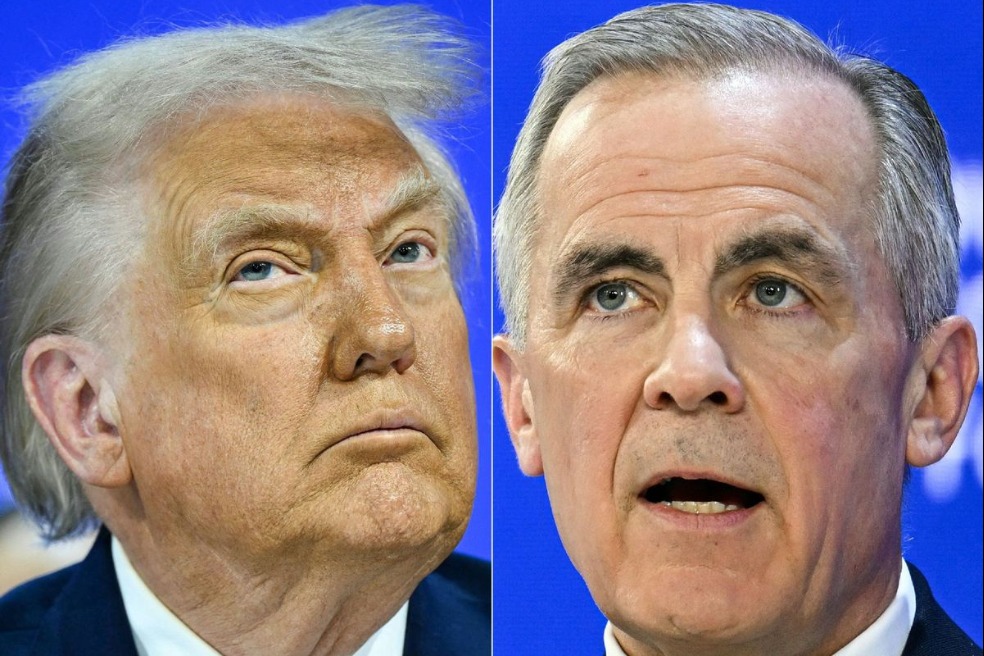Boeing could face lawsuits from families


As two crashes involving Boeing 737 MAX aircraft show similarities, legal experts said families of the victims have strong claims against the US company, even though such cases are usually against airlines, rather than a manufacturer.
The potential liability that Boeing faces includes a product defect claim from the flight-control software that disabled a pilot's ability to maintain the stability of the aircraft, and a negligence claim for failure to provide training for the pilots after the new software was introduced, Robert L. Rabin, a law professor at Stanford University, told China Daily on Wednesday.
Another legal claim may be negligence for failure to revise the software or to ground the planes temporarily after the first crash, which is critical to the second accident, said Rabin, an expert on accident law.
An Ethiopian Airlines 737 MAX flight crashed on March 10, killing all 157 people onboard. In October, a Lion Air 737 MAX flight crashed into the Java Sea, leaving 189 dead. Both crashes occurred minutes after takeoff.
The second accident increases Boeing's risk for liability because "the similarities to the first crash scenario provide circumstantial evidence of the deficiency in the software", said Rabin.
Based on various news articles about the suspect flight control system MCAS (Maneuvering Characteristics Augmentation System), a feature on Boeing 737 MAX aircraft intended to prevent stalls at low speed, Boeing certainly has huge exposure for damages to families of victims, said Douglas Moss, a pilot and aircraft certification expert, in an email.
"It appears that Boeing missed a few critical design requirements. If that is found to be the case, the FAA (Federal Aviation Administration) may come down very hard on Boeing," said Moss, who owns aviation consultancy AeroPacific in Reno, Nevada.
"In fact, the FAA could assume that if there were so many missed requirements in the 737 MAX, what could Boeing have missed in the 777 X and 787 designs?" he said.
"Depending on how hard the FAA comes down on Boeing, it could shut down their whole plant for a very, very long time, which would be financially disastrous for Boeing," Moss said.
The FAA, however, is very "politically sensitive" — both to Congress and the public, said Moss. "No one knows where this is going to go, but it could be significant."
Boeing's potential legal liability depends on the findings of the investigation, because no specific facts have come out yet, said Mark A. Dombroff, an attorney with Alexandria, Virginia-based law firm LeClairRyan.
"We have reports of similarities, but until we have the facts associated with the recorders — the flight data recorder and cockpit voice recorder — all that anybody is doing and engaging in is speculation," Dombroff told China Daily.
While the investigations are still ongoing, some of the families of the victims from the Lion Air crash have filed lawsuits against Boeing in Cook County Circuit Court in Illinois. (Boeing's corporate headquarters are in Chicago).
"The legal system in the United States tends to be more generous by way of awarding damages than anywhere else in the world," said Dombroff, who specializes in the aviation and transportation industries.
"Secondly, there's a perception that juries in Cook County tend to be more generous giving plaintiffs awards than in other places," he added.
However, under the forum non conveniens doctrine, a discretionary power that allows courts to dismiss a case when there is a more appropriate court to hear it, the suits filed in the US could be transferred to a court that's closer to the crash site, said Rabin.
"The judge wouldn't necessarily do that, but it would be up to the discretion of the judge," he said.
For the eight US citizens on the Ethiopian Airlines flight, the fact that their families presumably live in the US, plus the fact that Boeing manufactures aircraft in the US, would make a "somewhat stronger argument for not transferring the case", said Rabin.
Even if the cases remain in the US, there's the question of which country's laws would apply — again that would be up to the discretion of the judge, he said.
Dombroff said a foreign country's law may be applied to damages, even though US law may be applied to liability.
"If you judge the conduct of a US company, the argument is the US law ought to be used; but if you judge how much damages to award, the question becomes: if an Ethiopian citizen is onboard an Ethiopian airplane that is flying and never touching the US, why should the damages to be awarded to the family be measured by US law?" he explained.
Expecting more lawsuits against Boeing following the second crash, Rabin said there would be some incentive for the company to settle the case.
"One can see why Boeing might be eager to settle the case and get all of this behind them rather than have protracted litigation, which isn't good for the reputation of the company and creates financial uncertainties as well," said Rabin.































